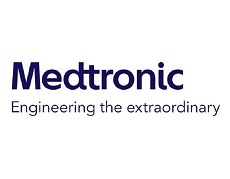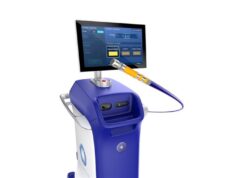 Medtronic has announced the presentation of clinical study results demonstrating a high rate of durable lesion formation with the PulseSelect pulsed field ablation (PFA) system in treating atrial fibrillation (AF). Invasive remapping conducted approximately two months post-ablation with the PulseSelect PFA system demonstrated durable isolation in 98% of pulmonary veins (PVs), and 96% of patients had all veins isolated.
Medtronic has announced the presentation of clinical study results demonstrating a high rate of durable lesion formation with the PulseSelect pulsed field ablation (PFA) system in treating atrial fibrillation (AF). Invasive remapping conducted approximately two months post-ablation with the PulseSelect PFA system demonstrated durable isolation in 98% of pulmonary veins (PVs), and 96% of patients had all veins isolated.
These late-breaking clinical trial results were presented recently at the Asia Pacific Heart Rhythm Society (APHRS) Scientific Sessions (26–29 September, Sydney, Australia).
“Real-world evidence on chronic lesion formation and durability is critical as use of PFA for the treatment of AF rapidly increases, making these results impactful and timely for the electrophysiology community,” said Devi Nair (St Bernard’s Medical Center and Arrhythmia Research Group, Jonesboro, USA). “Our research shows that treatment with PulseSelect results in durable lesion formation, which is the cornerstone of successful pulmonary vein isolation [PVI], and an important addition to previous evidence establishing the safety and effectiveness of this technology.”
A total of 25 persistent or paroxysmal AF patients (56% paroxysmal) undergoing PVI with the PulseSelect PFA system—with an average age of 69 years and 52% of whom were male—were evaluated in the present study. Invasive remapping conducted in all patients at an average of 57 days post-ablation demonstrated durable isolation in 98% of PVs (102/104), and 96% of patients (24/25) had all veins isolated.
All index ablation procedures were conducted using intracardiac echocardiography and electroanatomical mapping (EAM) without fluoroscopy. General anaesthesia was used in 24 of 25 patients, and all patients were discharged on the same day. Average skin-to-skin procedure time was 36 minutes. Acute PVI was achieved in 100% of patients, and there were no complications during an average follow-up period of 74 days, a Medtronic press release claims.
Global expansion
The company’s recent release also states that broad adoption of PulseSelect is continuing globally, with more than 10,000 cases performed worldwide. In the Asia-Pacific (APAC) region, milestones include regulatory approvals in China and Australia, and the launch of the system in Japan following reimbursement approval earlier this year.
“PulseSelect is the first PFA catheter to receive reimbursement approval in Japan based on clinical trial results that include Japanese patients,” said Hiroshi Tada (University of Fukui, Fukui, Japan), president of the Japanese Heart Rhythm Society. “We believe that the future widespread availability of this breakthrough technology under insurance coverage will be of great significance in the history of arrhythmia treatment in Japan.”
“These important results clearly address the durability question and add to the real-world evidence for PulseSelect,” added Rebecca Seidel, president of the Cardiac Ablations Solutions business within Medtronic’s Cardiovascular portfolio. “With expansion in new markets across the Asia-Pacific region, physicians around the world are experiencing the benefits of PulseSelect, including proven safety, efficacy, efficiency and now durability as well. We are thrilled to provide this important tool to physicians for the treatment of patients with AF.”
Additional Medtronic data
In addition to these new PulseSelect data, APHRS 2024 saw final results from Medtronic’s global EV ICD pivotal trial presented by Ian Crozier (Christchurch Hospital, Christchurch, New Zealand) during a late-breaking science session. These data—which were simultaneously published in the journal Circulation—reinforce the longer-term performance and safety of the Medtronic extravascular implantable cardioverter defibrillator (EV-ICD) system, according to the company.
The EV ICD study sought to demonstrate how the “first-of-its-kind” Medtronic EV-ICD system can safely and effectively deliver painless shocks or anti-tachycardia pacing (ATP) via a single device and implant procedure while remaining outside the vascular space. Final results showed an ATP success rate of 77%—which is in line with more traditional transvenous ICDs—alongside effective defibrillation, according to Medtronic. The EV-ICD system also demonstrated a low major complication rate, with shocks avoided in nearly half of the episodes due to the availability of ATP.
Also featured at APHRS 2024 were new reliability data from the Medtronic-sponsored LEADR trial of the investigational OmniaSecure defibrillation lead, showing a projected 10-year fracture-free survival rate of 98.27% in adults and 97.91% in adolescents for this novel, small-diameter lead. These analyses were presented by Prash Sanders (University of Adelaide, Adelaide, Australia).









